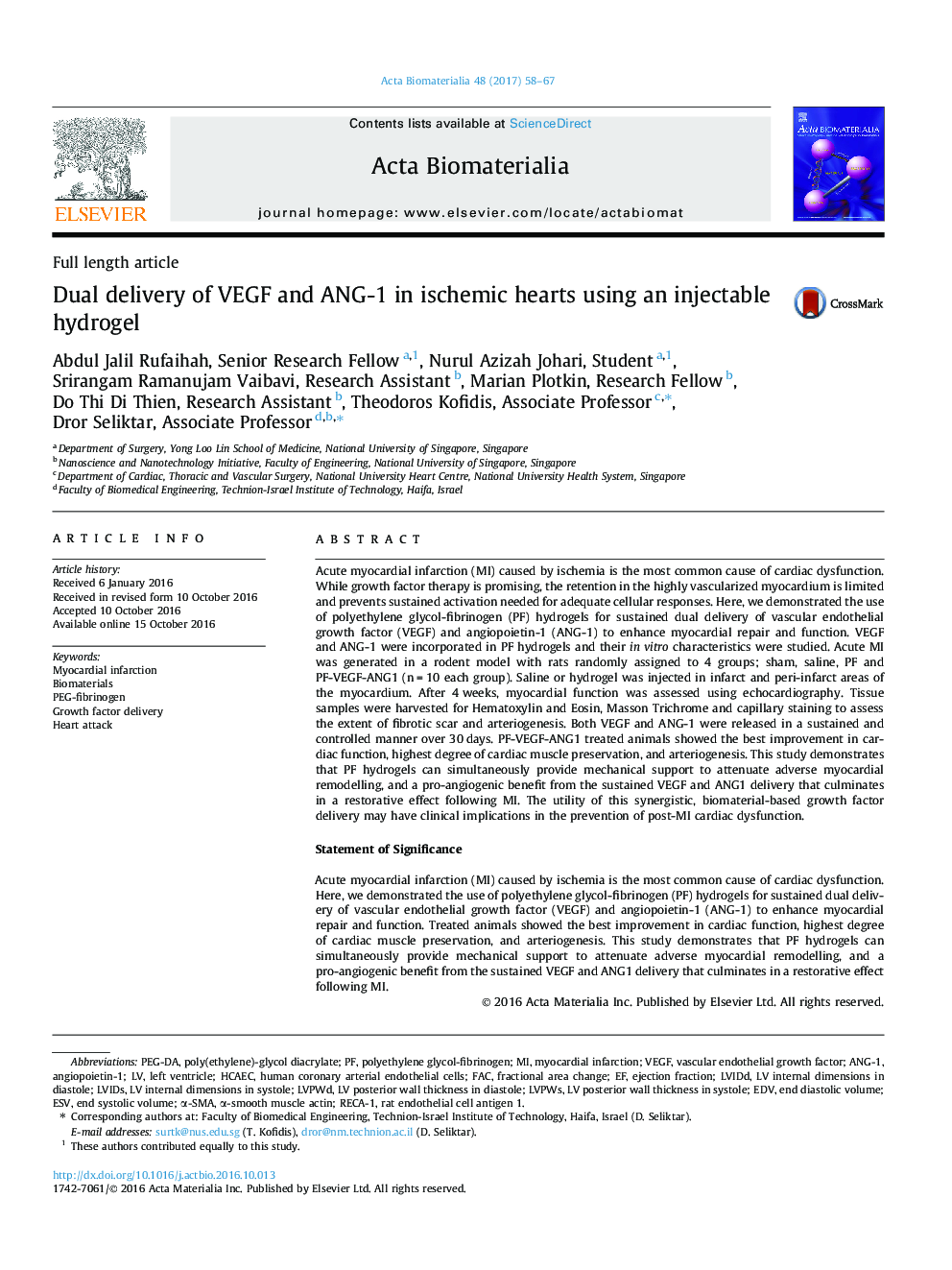| Article ID | Journal | Published Year | Pages | File Type |
|---|---|---|---|---|
| 6449882 | Acta Biomaterialia | 2017 | 10 Pages |
Acute myocardial infarction (MI) caused by ischemia is the most common cause of cardiac dysfunction. While growth factor therapy is promising, the retention in the highly vascularized myocardium is limited and prevents sustained activation needed for adequate cellular responses. Here, we demonstrated the use of polyethylene glycol-fibrinogen (PF) hydrogels for sustained dual delivery of vascular endothelial growth factor (VEGF) and angiopoietin-1 (ANG-1) to enhance myocardial repair and function. VEGF and ANG-1 were incorporated in PF hydrogels and their in vitro characteristics were studied. Acute MI was generated in a rodent model with rats randomly assigned to 4 groups; sham, saline, PF and PF-VEGF-ANG1 (n = 10 each group). Saline or hydrogel was injected in infarct and peri-infarct areas of the myocardium. After 4 weeks, myocardial function was assessed using echocardiography. Tissue samples were harvested for Hematoxylin and Eosin, Masson Trichrome and capillary staining to assess the extent of fibrotic scar and arteriogenesis. Both VEGF and ANG-1 were released in a sustained and controlled manner over 30 days. PF-VEGF-ANG1 treated animals showed the best improvement in cardiac function, highest degree of cardiac muscle preservation, and arteriogenesis. This study demonstrates that PF hydrogels can simultaneously provide mechanical support to attenuate adverse myocardial remodelling, and a pro-angiogenic benefit from the sustained VEGF and ANG1 delivery that culminates in a restorative effect following MI. The utility of this synergistic, biomaterial-based growth factor delivery may have clinical implications in the prevention of post-MI cardiac dysfunction.Statement of SignificanceAcute myocardial infarction (MI) caused by ischemia is the most common cause of cardiac dysfunction. Here, we demonstrated the use of polyethylene glycol-fibrinogen (PF) hydrogels for sustained dual delivery of vascular endothelial growth factor (VEGF) and angiopoietin-1 (ANG-1) to enhance myocardial repair and function. Treated animals showed the best improvement in cardiac function, highest degree of cardiac muscle preservation, and arteriogenesis. This study demonstrates that PF hydrogels can simultaneously provide mechanical support to attenuate adverse myocardial remodelling, and a pro-angiogenic benefit from the sustained VEGF and ANG1 delivery that culminates in a restorative effect following MI.
Graphical abstractDownload high-res image (153KB)Download full-size image
